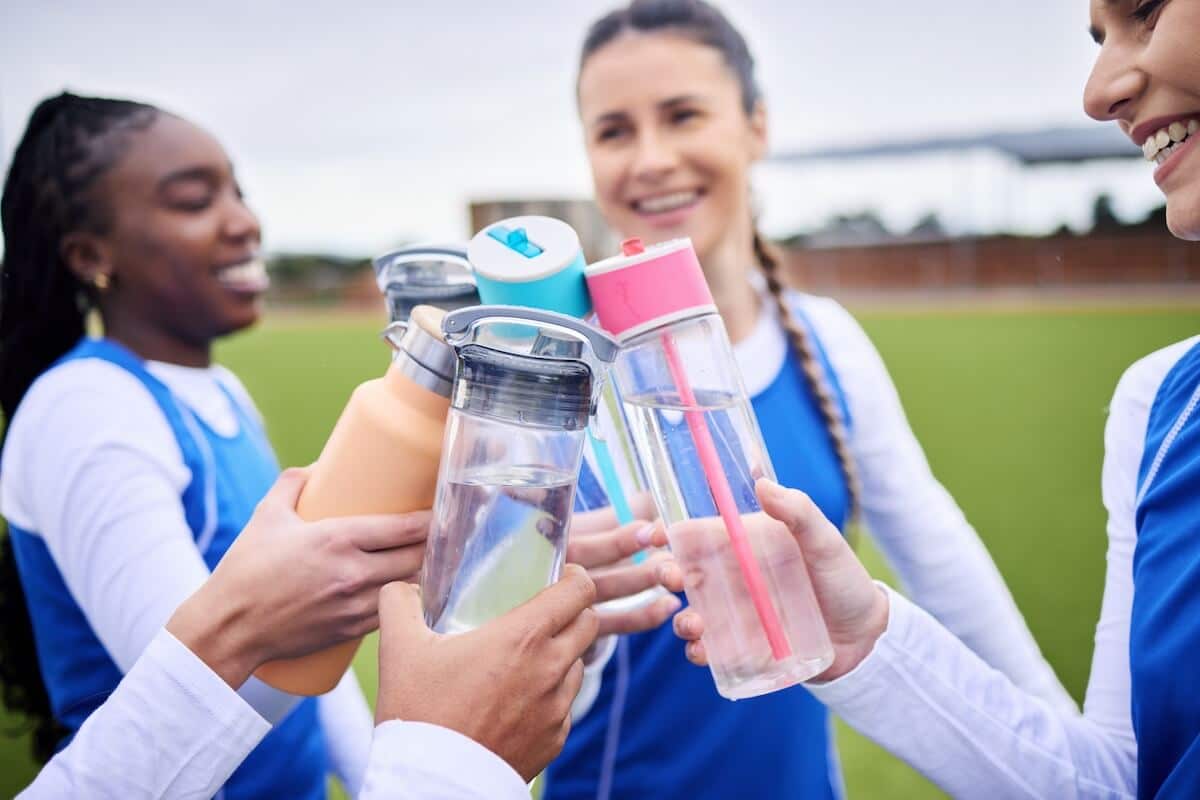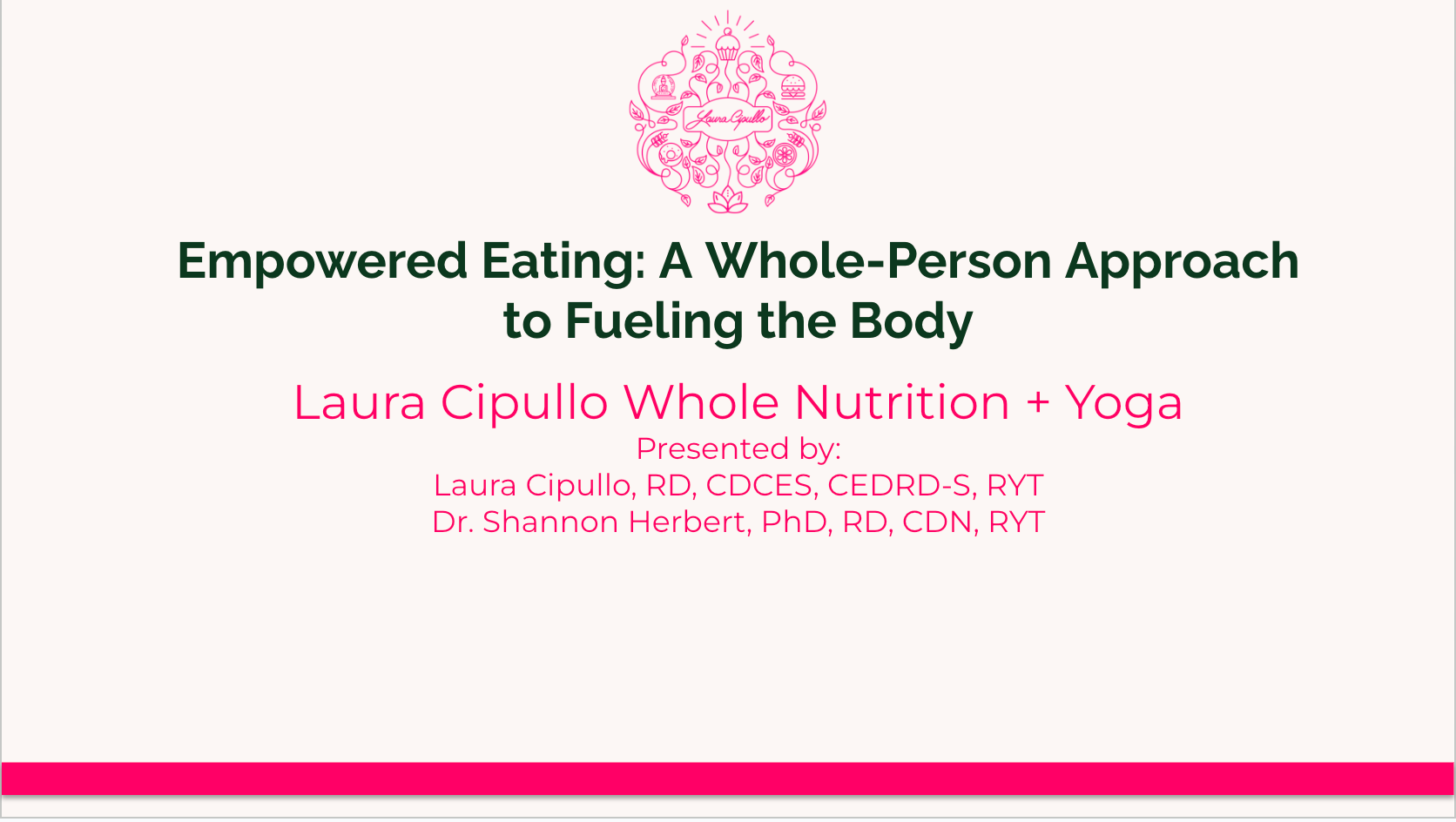Nutrition for the Soccer Athlete: Fueling for Peak Performance

By Rebecca Jaspan, MPH, RD, CDN, CDCCES
The average soccer player runs anywhere between 5 and 7 miles per game1. For an athlete playing 1-2 games per week and practicing in between, fueling and hydrating adequately is of utmost importance to keep your energy levels high during training and games. Soccer involves a combination of quick bursts of sprinting, moderate running, with occasional rest periods, requiring a unique approach to nutrition to achieve a high level of performance. Whether you’re playing in a recreational league or playing at a higher level, all soccer players can benefit from ensuring they are fueling properly and recovering quickly.
Soccer is a physically demanding sport and individual nutrition recommendations are determined by amount of training, level of competition, specific athlete needs, training goals, as well as overall health of the athlete based on their age and fitness level. Whether you are an amateur or elite player, nutrition and hydration habits can make a big difference on and off the field2.
What Does a Soccer Player’s Diet Look Like?
A soccer player’s eating pattern should consist of high carbohydrate, moderate protein, and moderate fat. Since our brain’s and muscles’ preferred source of energy is glucose from carbohydrates, soccer players need enough carbohydrates to sustain them throughout their games and practices. When your body needs energy, it draws on its glycogen stores, which are glucose stored in your liver and muscles from the food you eat. The amount of glycogen stored in liver and muscle cells depends on how active you are, how much energy you are using at rest, and the kinds of foods you eat.
Due to the physical demands on the athlete during a practice or match, glycogen stores in the muscle decrease, which can result in fatigue and slower running speeds2. Low glycogen stores can also have a negative effect on cognition, resulting in slowed decision making on the field. Research on soccer players consistently indicates that they trend toward diets that do not provide enough carbohydrates and support the use of nutrition counseling from dietitians for best results3.
The good news is with a little bit of planning, you can maximize your energy and performance on the field.
What to Eat Before Practices and Games
It is important to begin practices and games well-fueled. The meal or snack should focus on carbohydrates with some protein and fat to provide satiety. Athletes may want to eat a meal 3-4 hours before a game and a small snack 30 minutest to 1 hour before. The meals and snacks should also be low in fiber so they are easy to digest and do not cause any gastrointestinal upset2.
Some pre-game meal ideas include (3-4 hours before):
- Yogurt with granola with less than 5 grams of fiber and berries
- Chicken or tuna sandwich
- Pasta with meat sauce
- Chicken stir-fry with mini carrots and peas over rice or soba noodles
Some pre-game snack ideas include (30 minutes to 1 hour):
- Banana and low fat yogurt
- Beef or turkey jerky and crackers
- Protein shake
- Pita chips and hummus
What to Eat During Practices and Games
Due to the high intensity of soccer, players often need to refuel during the games with a source of simple carbohydrates or sugar that is broken down quickly and used for fuel. Something high in carbohydrates, quick, and easily digestible is key. As a rule of thumb, 30-60 grams of carbohydrates should be consumed every hour and this may change depending on your activity level during games and speed. Some good ideas are low fiber granola bars, bananas, sports drinks, and energy gels. Energy gels are typically 15 grams of carbohydrates per gel, making them a quick and easy refueling tool.
What to Eat After Practices and Games
Post-game recovery meals should contain carbohydrates to maximize speed of recovery and replenish muscle glycogen stores, protein for muscle repair, and plenty of fluid to replace sweat losses2. Right after the game or within 30 minutes, it is important to refuel with carbohydrates to replenish glycogen stores. A meal containing carbohydrates, protein, and fat should be consumed within 1-2 hours after a game.
Post-game recovery snacks (within 30 minutes after a game):
- Energy drink like Gatorade or Powerade
- Carbohydrate/protein granola bar
- Banana
Some post-game recovery meals (1-2 hours after a game):
- Chicken avocado sandwich
- Peanut butter and banana sandwich
- Bean and cheese burrito
What About Hydration?
Soccer players need to replenish the fluid and electrolytes lost through sweating. Children may lose 1-4lbs of sweat during a game while adults may lose 6-8lbs. Research shows that many soccer players begin their games already dehydrated and while they may take the opportunity to drink during breaks in the game, fluid intake usually doesn’t match fluid loss4. While total replacement of fluid isn’t necessary, players should aim to replenish as much fluid and electrolytes through both water and salty snacks or sports drinks as they can after games and practices to prevent muscle cramps and dizziness.
It is helpful for players to drink fluids with all meals and snacks, carry a water bottle with them throughout the day and drink 200-600ml of fluid before starting a practice or game. Athletes can also use sports drinks or electrolyte tablets or salt packs added to water.
Food and hydration choices are so important to support the performance of soccer players. Food and drink consumed before, during, and after games and practices can have a major influence on your skills and ability. If you have questions about nutrition for soccer performance, talk to your dietitian at Laura Cipullo Whole Nutrition. We can help you create a realistic plan to maximize your nutrition for your sport while also taking into account your busy lifestyle and other commitments.
References
- Karpinski, PhD, RDN, CSSD, LDN C. Sports Nutrition: A Handbook for Professionals.
- Food for soccer. Sports Dietitians Australia (SDA).
- Kristine Clark (1994) Nutritional guidance to soccer players for training and competition, Journal of Sports Sciences, 12:sup1, S43-S50, DOI: 1080/02640414.1994.12059279
- Maughan, Ronald J. PhD; Shirreffs, Susan M. PhD Nutrition for Soccer Players, Current Sports Medicine Reports: October 2007 – Volume 6 – Issue 5 – p 279-280 doi: 10.1097/01.CSMR.0000306487.30777.2f







